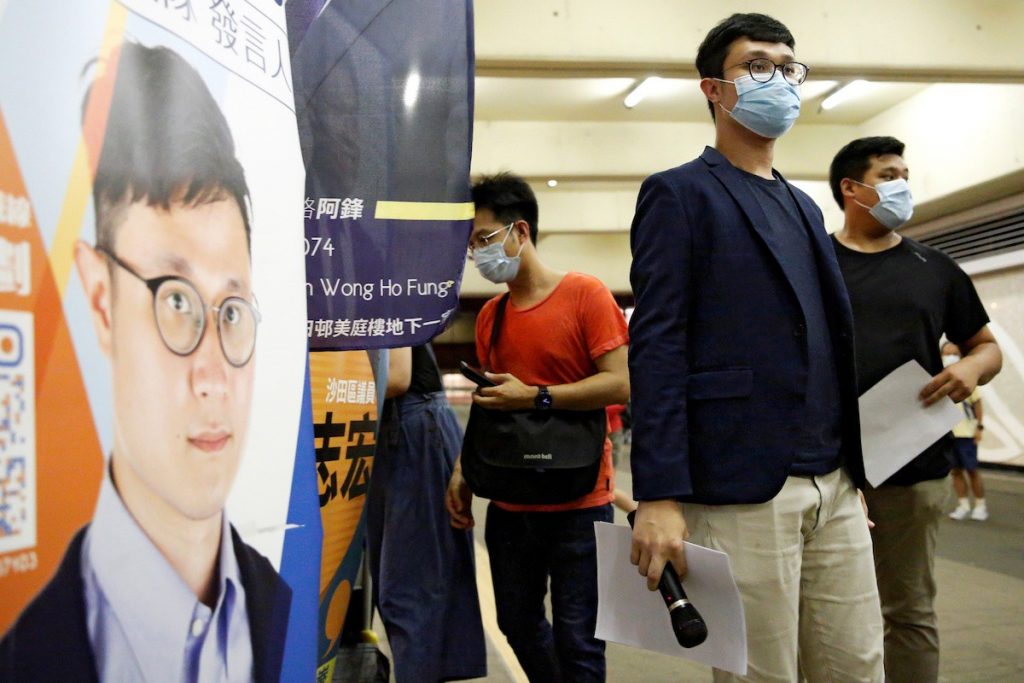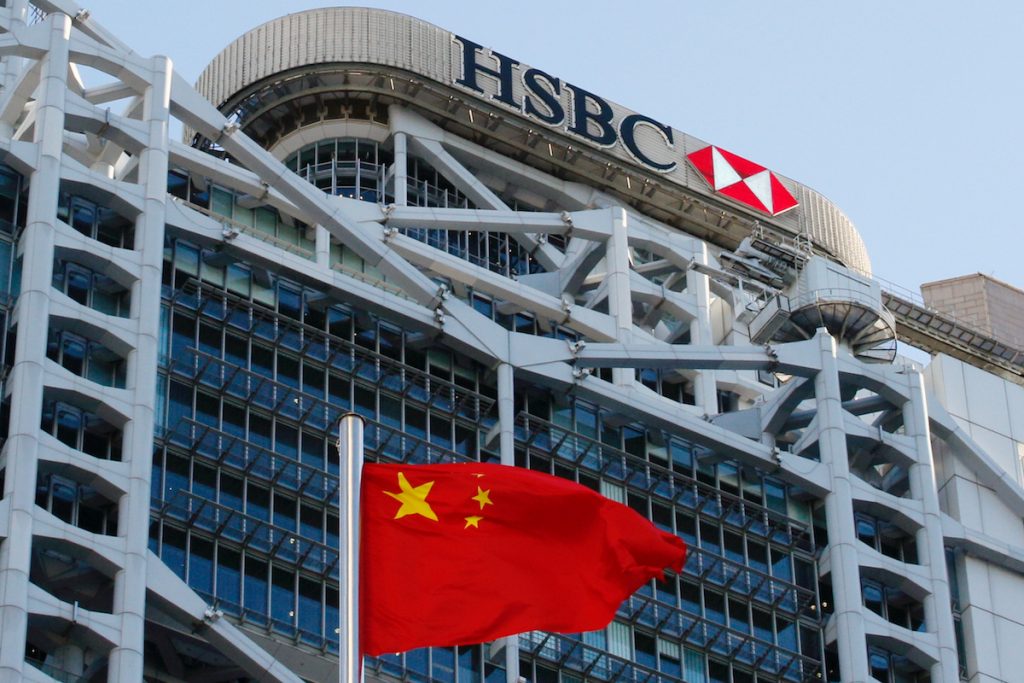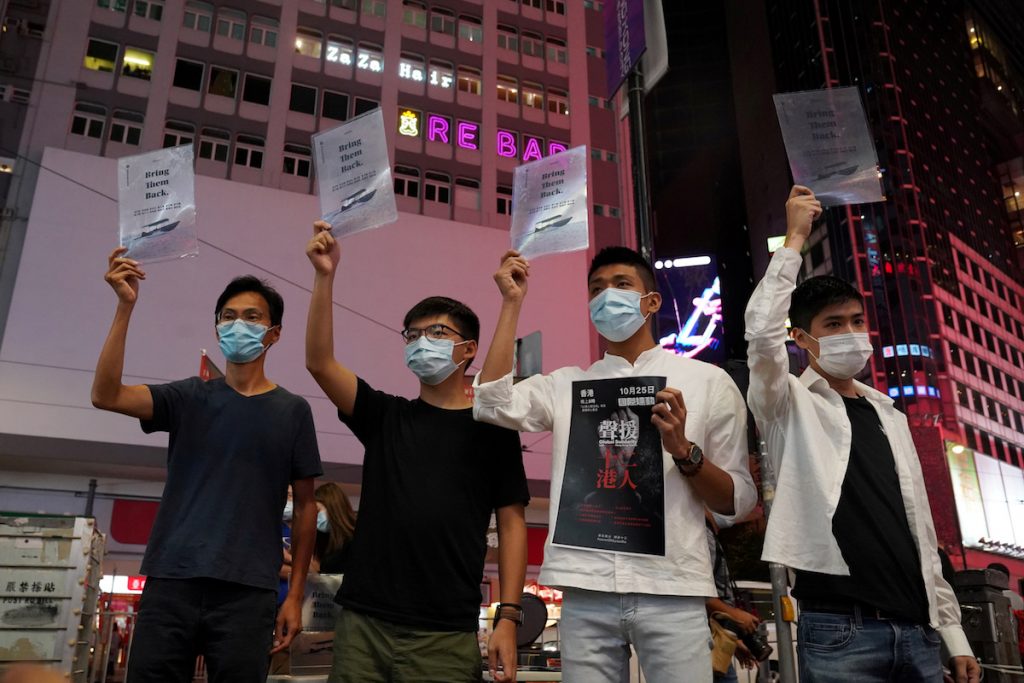
Hong Kong authorities are scrutinizing the financial records of pro-democracy activists as they crack down on political opposition, according to some activists and a senior bank executive.
Six pro-democracy activists told Reuters that Hong Kong police obtained some of their bank records without their consent and questioned them about certain transactions after they were arrested earlier this month on suspicion of subversion under the territory’s national security law.
The number of requests for customers’ financial records by Hong Kong police has more than doubled over the past six months or so, an executive at a major retail bank in Hong Kong with direct knowledge of the matter told Reuters. The executive said the number of people affected likely remains in double figures overall. The person said the increase was due to requests for information about pro-democracy activists.
The increasing use of bank records in questioning activists, which has not previously been reported, shows police in the Chinese-run city are using the full extent of their powers to investigate people suspected of breaking the stringent national security law which was introduced on June 30, according to the six activists.
Some of the banks involved include HSBC Holdings Plc and its Hang Seng Bank Ltd subsidiary, Citigroup Inc unit Citibank and Standard Chartered Plc. Representatives of those banks declined to comment on individual accounts.
Banks in Hong Kong have little choice but to comply with police requests, the senior bank executive told Reuters: “The aggrieved party can go to the court if they think their accounts were frozen or their transaction details were shared for wrong reasons, but there’s very little we can do here.”
On Jan. 25, HSBC Chief Executive Noel Quinn told British lawmakers that his bank wasn’t in a position to “judge the motives” of Hong Kong police when they made requests to see accounts.

“I can’t cherry-pick which laws to follow,” Quinn told a committee of lawmakers in a hearing over the lender’s freezing of Hong Kong democrats’ bank accounts. He added that the bank would have to comply with police requests in any country in the world.
A Hong Kong police representative declined to comment on why officers were seeking activists’ financial records, saying the department would not disclose details of its operations or investigations. The Hong Kong government did not respond to a request for comment on how or why police sought the bank information of arrested suspects.
Police in Hong Kong, as in most places in the world, have long been able to request customer information from banks as part of criminal investigations. Reuters could not determine whether the national security law has made it easier for police to get hold of individuals’ bank records.
The law does not mention access to bank information. It does give authorities the power to seize funds they believe are the proceeds of, or are intended to be used for, breaking the national security law. Authorities have not announced the seizure of any funds under that provision.
A spokeswoman for the Hong Kong Monetary Authority, which regulates the banking sector, said: “Financial institutions are expected to cooperate with (law enforcement agencies) on investigations and law enforcement actions.”
Crowdfunding campaign for vote
Ninety-four people have been arrested under the national security law, which punishes anything authorities regard as secession, subversion, terrorism or collusion with foreign forces with up to life in prison.
China’s parliament imposed the law on Hong Kong in response to sometimes violent protests in 2019. The protests were prompted by fears that Beijing was stifling the city’s freedoms, guaranteed by the “one country, two systems” formula agreed when Hong Kong returned to Chinese rule in 1997. Authorities in Beijing and Hong Kong say the law is only aimed at a few “troublemakers” and not wider rights that underpin the city’s role as a gateway for capital flows in to and out of China.
The six activists who spoke to Reuters were among 53 arrested in a dawn sweep on Jan. 6. They were questioned about their roles in a July vote organized by pro-democracy parties to choose candidates for a legislative council election that was scheduled for September. The legislative council election was later postponed. The Hong Kong government has described the pro-democracy vote as part of an attempt to overthrow the government. None of the arrested activists have been charged and all have been released on bail.

One of the arrested activists, Owen Chow, told Reuters that police obtained his financial records from Citibank, Hang Seng Bank and PayMe, a phone payment app operated by HSBC, and asked him about the source of funds of up to HK$100,000 ($13,000) paid into the three accounts. He said police confiscated his debit and credit cards issued by Citibank and Hang Seng Bank.
Another activist, Ventus Lau, told Reuters that police showed him paper copies of statements from his Hang Seng Bank account and questioned him regarding a “few dozen” transactions that took place in the run-up to the vote. Lau told Reuters he used the account to receive money from a crowdfunding campaign to finance the unofficial election.
Four other arrested activists, who asked not to be named, told Reuters police produced copies of their bank records during questioning. Two of those activists said police showed them copies of their bank statements from Standard Chartered Bank. The other two declined to say which banks were involved.
Police requests for customer data are a further headache for international banks caught in the crossfire between China and the United States over Hong Kong, according to three executives at foreign banks in Hong Kong who spoke to Reuters. Tension between the two countries has escalated since the introduction of the national security law, which Beijing said was necessary to restore stability, but Washington characterized as an assault on democracy.
Shortly after the passage of the law, the US government barred American companies and people from doing business with Chief Executive Carrie Lam and 10 other Hong Kong and Chinese officials. International banks including HSBC, Hong Kong’s largest bank, have complied with the US sanctions.
Hong Kong authorities have compelled banks to freeze the accounts of several pro-democracy activists, including media tycoon Jimmy Lai, who was charged in December under the national security law and is now in prison in Hong Kong awaiting a bail hearing. HSBC froze Lai’s account last year, according to Mark Simon, an associate of Lai. HSBC declined to comment.
Banks “are between a rock and a hard place,” said Steve Tsang, director of the China Institute at the School of Oriental and African Studies, part of the University of London in Britain. “When the police come and ask for whatever, as long as it is in accordance with the laws of Hong Kong, they have to comply,” he said. “This can conflict with the expectations people have of their multinationals back in their home country.”
Source: Licas Philippines
0 Comments